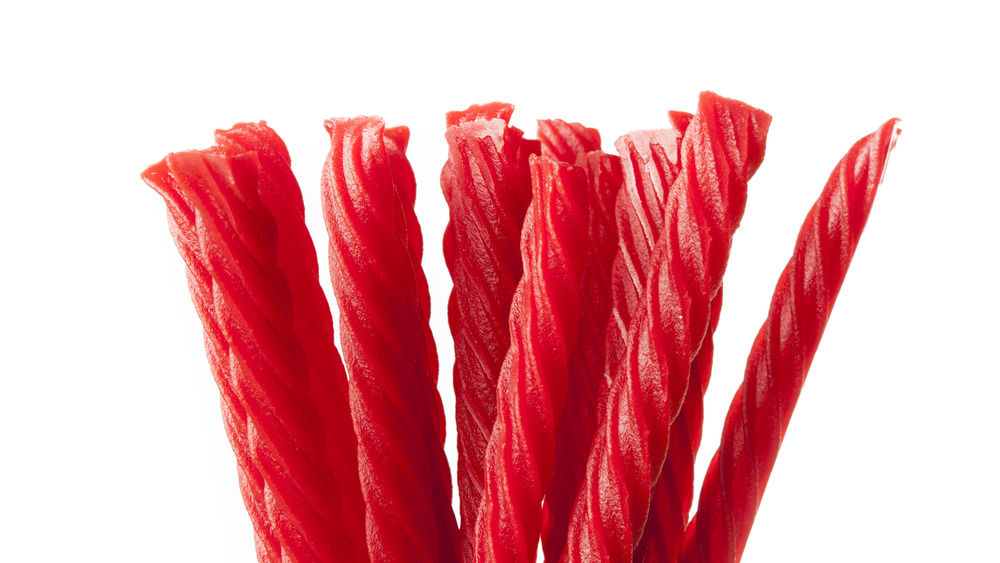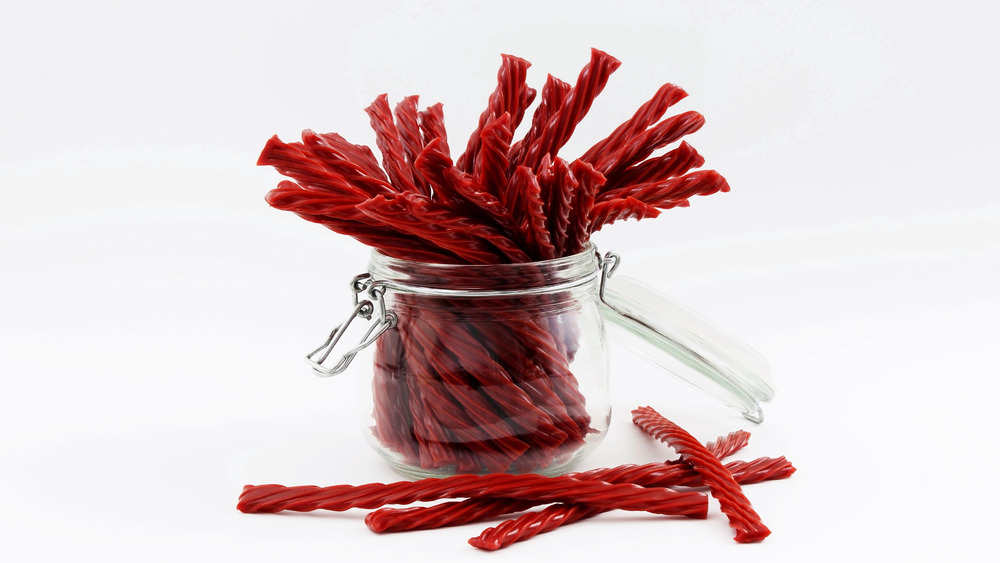Here's Why Red Vines Aren't Actually Licorice
Do you like the taste of licorice? For many of us, the answer to that questions sounds something like, "I'm not a big fan of black licorice, but I like Red Vines!" It turns out — if that's your answer — you don't really like licorice at all. The so-called "red licorice" candies may look a little like licorice, and Red Vines may be manufactured by the American Licorice Company, but according to experts, they don't actually qualify as licorice. Why not? Simple — because there's no licorice in them.
"Licorice is a plant, Glycyrrhiza glabra," Kelila Jaffe, Food program coordinator at NYU's Steinhardt Department of Nutrition, Food Studies, and Public Health explained to Huffington Post. "But the term also refers to the confections derived from that plant's sweet roots (black licorice). Other candies of similar form use the name as well, but are not actually flavored with licorice extract."
Unless you're buying the Red Vines Black Licorice, which is hardly what comes to mind when someone says Red Vines, your candy isn't going to contain any actual licorice.
So what are Red Vines then?
Red Vines are a corn-syrup based candy made with fully artificial flavors — no plant extract. The ingredients are corn syrup, high-fructose corn syrup, wheat flour, citric acid, artificial flavor, and red 40 (via Red Vines).
The red licorice-inspired candy and black licorice are "made by a similar process, which combines sugar with a starchy binder and the desired flavoring agents," Jaffe explains. So yes, Red Vines and licorice have things in common, and that explains why the textures are so similar. Still, the name licorice is misleading. If you don't like the thick, somewhat bitter flavor of black licorice, you don't like licorice.
Not convinced? Red Vines' own FAQ includes the question, "Do Red Vines® Original Red® Twists contain real licorice root or extract?" The company's answer? "Only Red Vines® Black Licorice Twists contain licorice extract." There you have it, folks: no licorice, contrary to popular belief.

